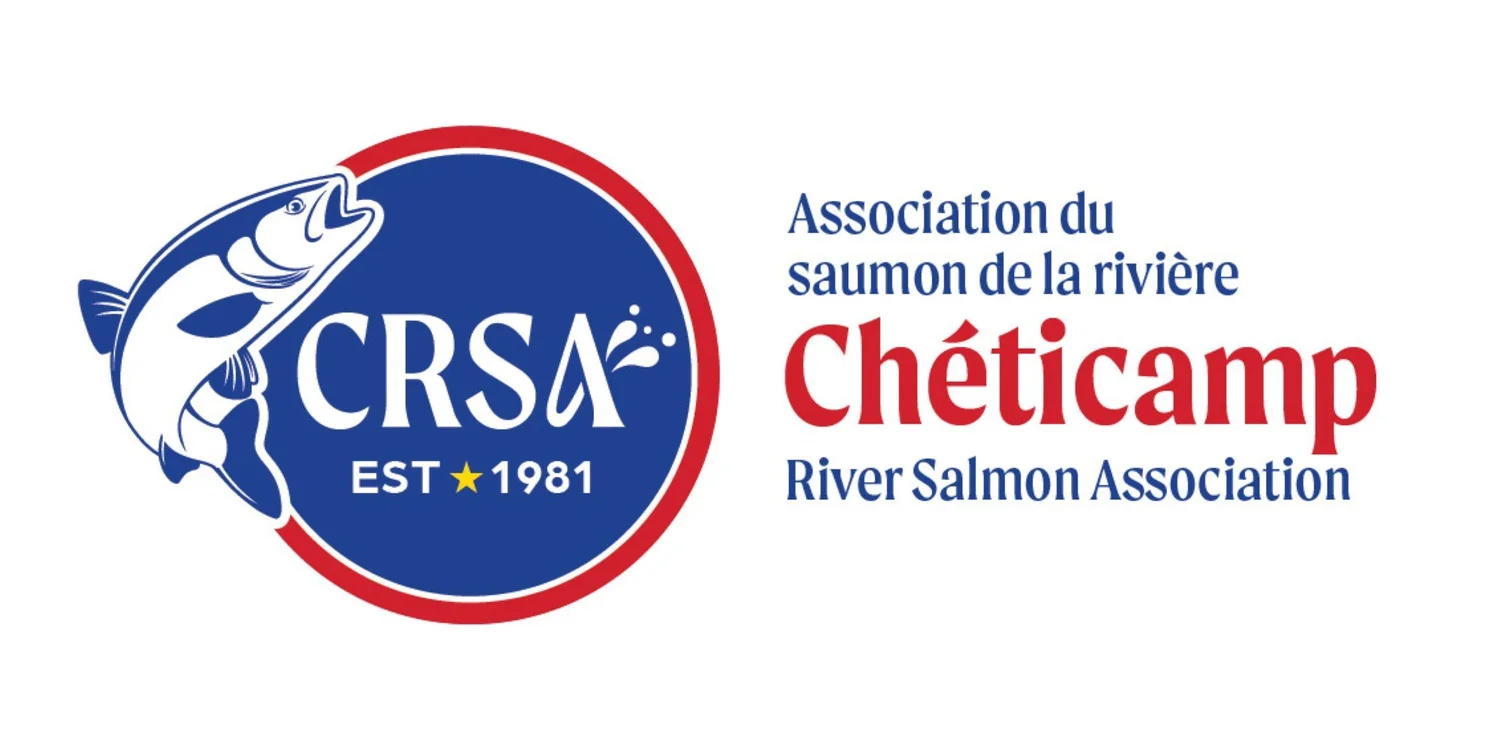Work on Farm Brook included new instream structures and signage to help protect important spawning habitat
Atlantic salmon and brook trout are expected to benefit from recent changes on Farm Brook, thanks to efforts initiated by the Cheticamp River Salmon Association. The CRSA’s most recent accomplishments on Farm Brook include the installation of a variety of new instream structures as well as signage to educate off-highway vehicle (OHV) trail users about potential impacts to sensitive habitat.
CRSA’s field crew – technician Spencer Camus (left) and crew supervisor Tobias Gow (right) – work on installing a digger log on Farm Brook.
The CRSA has been involved in a variety of activities in recent years to improve habitat and better conserve the native fish populations on Farm Brook – a watercourse in Point Cross, south of Cheticamp. Past work has included the development of a fish habitat restoration planning document, completion of a multi-year bank stabilization project, and the removal of a major blockage of large woody debris near the mouth of the watercourse to restore fish passage.
This year, the CRSA’s field crew was busy installing instream structures designed to improve habitat – a continuation of work initiated last summer. The structures installed by the CRSA this year consist of digger logs and rock sills – structures that are designed to encourage the development of pools and support a watercourse’s natural pool-riffle pattern. While the CRSA has considerable experience installing digger logs, the rock sills on Farm Brook are the first examples of this type of instream structure that the CRSA has built by hand.
One of the rock sills installed by the CRSA’s field crew on Farm Brook this summer.
The CRSA also partnered with Cheticamp’s Highland ATV Club to take additional measures to protect important spawning habitat on Farm Brook this summer. After identifying a location where trail users were routinely driving through Farm Brook on their ATVs and other off-highway vehicles, the CRSA reached out to the Claude Bourgeois, President of the Highland ATV Club, to discuss potential remedies.
With help from Claude, the CRSA installed two signs at locations where OHVs are being driven through Farm Brook. The new signage is meant to raise awareness of the CRSA’s habitat restoration work on the brook, as well as let OHV users know that operating these vehicles in watercourses can result in negative impacts to important habitat. Many OHV users may also be unaware that the Off-Highway Vehicles Act in Nova Scotia prohibits the operation of OHVs in watercourses, as well as other sensitive habitats including wetlands, sand dunes, and coastal barrens. The CRSA will also discuss ways to work with the Highland ATV Club to ensure that bridges on Farm Brook and other local watercourses are in good condition as a way to further encourage OHV users to use these crossings.
CRSA’s field crew poses with Highland ATV Club President Claude Bourgeois by one of the new signs installed on Farm Brook. Left to right: Jillian Baker, Tobias Gow, Claude Bourgeois, and Spencer Camus.
The CRSA’s work on Farm Brook is part of the organization’s broader 2023 project focused on addressing key habitat restoration needs in the Cheticamp River watershed and surrounding area. The CRSA’s activities this year are funded through a variety of well-established and new partnerships, including the Nova Scotia Salmon Association’s Adopt-a-Stream Program, the Foundation for the Conservation of Atlantic Salmon, the Atlantic Salmon Federation, and the Sustainable Communities Challenge Fund – a new provincial grant program administered by the Nova Scotia Federation of Municipalities.



